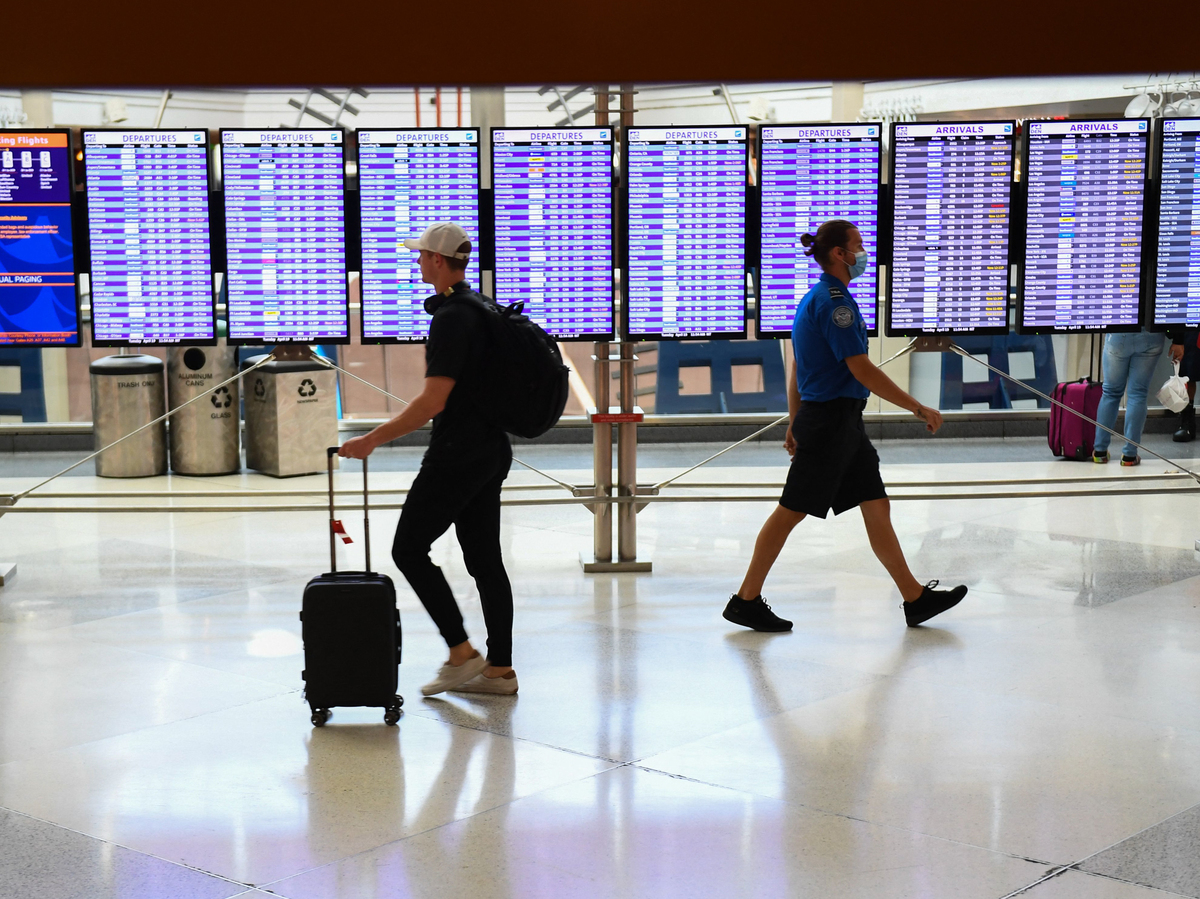A federal judge ended its mask mandate, so why is the government slow to appeal? : Shots

Mask mandates on community transportation are no longer in influence subsequent a ruling by federal choose on Monday. The federal governing administration suggests it will attraction the ruling but is having its time performing so.
Patrick T. Fallon/AFP via Getty Visuals
cover caption
toggle caption
Patrick T. Fallon/AFP by means of Getty Illustrations or photos

Mask mandates on public transportation are no more time in impact subsequent a ruling by federal choose on Monday. The federal government states it will attraction the ruling but is getting its time undertaking so.
Patrick T. Fallon/AFP by way of Getty Images
When U.S. District Choose Kathryn Kimball Mizelle ended the mask mandate on transportation with the stroke of a pen Monday, the Section of Justice claimed almost nothing.
Tuesday, the division explained it could attractiveness if the Facilities for Condition Command and Avoidance made a decision masks were however necessary.
Wednesday, Justice officials at last introduced they would appeal the selection. But the division however has not requested the choose to set a momentary pause on her far-reaching final decision whilst the legal procedure plays out.
For many observers, this all looks puzzlingly slow. The feeling by itself arrived in for some strongly-worded criticism like “authorized abomination” due to the fact of its very poor reasoning and rejection of set up lawful norms. To some, her interpretation of the regulation seemed poised to hamstring CDC now and in the future.

Legislation professor Stephen Vladeck at the University of Texas has a idea for why the Justice Office may well be having its time.
“If the government’s purpose was to basically have the mandate be in influence, we would have viewed it transfer speedier,” he states. “We would anticipate it to be trying to get emergency reduction by inquiring Decide Mizelle to continue to be her ruling and then – when she says no – by inquiring the Federal Court docket of Appeals in Atlanta to freeze her ruling pending the government’s charm.”
Alternatively, the purpose could be “to wipe off of the publications Judge Mizelle’s ruling, hanging it down,” he points out. “And that won’t require the government to move approximately as immediately. In truth, it may even make extra perception for the governing administration in that scenario to essentially go a small slowly and gradually.”
Here’s why: The CDC’s mask necessity on planes, trains and other modes of transportation was established to expire May well 3 in any case. With out a mask mandate in impact, in appealing the scenario, Vladeck states, “the authorities can say, ‘Look, we are not likely to have a prospect to argue why Judge Mizelle’s ruling was incorrect. Hence, the correct factor to do is to wipe that ruling off the books and just dismiss this full lawsuit.’ “
This strategy goes back again to a lawsuit involving Munsingwear, a Minnesota-based underwear corporation. In the mid-1940s, the govt sued the enterprise, alleging it was violating wartime value polices by overpricing its “major knitted underwear,” in accordance to information reports from the time. But it took yrs for the scenario took to go by way of the appeals method, and by then the products have been no for a longer period subject to cost controls, so the controversy was moot.
Enter the Munsingwear doctrine, which the Supreme Court docket recognized in its 1950 United States v. Munsingwear conclusion. Basically, when a dispute gets moot throughout the appeals course of action, the appellate courtroom should really normally vacate the lower court’s ruling.
“It is a pretty difficult-to-predict doctrine,” warns Matthew Lawrence, who teaches legislation at Emory and utilized to get the job done at the Office of Justice. “But fundamentally, in some instances, the appellate courts will – in choosing that the circumstance is moot – also wipe it off the textbooks.”
“In the CDC mask mandate situation, if the district court’s ruling have been vacated, then it would be as if the court experienced in no way ruled – legally talking,” claims Lawrence.
Each and every working day that goes by, Vladeck states, the additional he thinks the government’s method may be to wait right until the mask mandate expires and then ask the appeals court to wipe Choose Mizelle’s ruling off the books, even though he notes, “only the authorities understands what its motives are.”
The most significant issue with this attraction, Lawrence says, is the issue of who has the electric power to determine what general public wellness measures are essential. “The district court choose reinterpreted the law to take away CDC’s electrical power – to say the CDC could not impose a mask mandate,” he says, no matter of how severe the public wellness risk may possibly be.
“The definitely crucial issue about the case now is just clarifying that CDC has the electrical power given it by Congress and the General public Overall health Expert services Act, not this more slender, reinterpreted version of that ability issued by the court docket,” he states.
There are risks for the federal government in pleasing Decide Mizelle’s choice, he states, but if it had been left unchallenged, her determination would have been a “precedent looming in excess of the CDC.”








